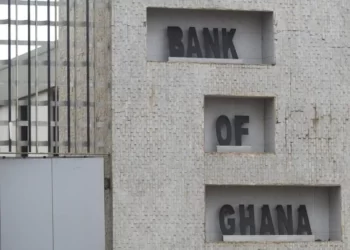Ghana’s ambition to boost its export sector is receiving renewed momentum as Absa Bank Ghana deepens its collaboration with exporters, trade institutions, and industry experts.
In a strategic move aimed at strengthening national economic growth, the Bank has vowed to reinforce its support systems, expand tailored financing, and co-create solutions that address the complex realities of the export ecosystem.
During a high-level forum in Accra, attended by exporters, industry associations, financial institutions, and trade specialists, Absa Bank officials emphasized the importance of partnership-driven innovation for Ghana’s export transformation.
Speaking at the gathering, Mr. Prosper Kuyipwah, Director of Transactional Banking at Absa Bank Ghana, underscored the Bank’s unwavering dedication to advancing the export sector.
“Absa is dedicated to working alongside exporters and stakeholders to develop practical solutions that drive growth, mitigate risks, and unlock the full potential of our export industry.”
He explained that Ghana’s export potential remains high, but to fully harness it, exporters must be supported with structured financing, improved risk management strategies, and access to critical market intelligence. The Bank’s collaborative approach, he noted, is tailored to empower businesses to compete more effectively in global markets.
The forum focused on the pressing issues shaping Ghana’s export environment, including: Access to tailored trade financing; Price volatility and currency exposure; Opportunities in high-growth export sectors; Supply chain disruptions; Foreign exchange fluctuations; Market access barriers
These conversations highlighted the need for banks and exporters to jointly design solutions that are practical, accessible, and responsive to the fast-changing global trade landscape.
The session was organized in collaboration with the Ghana Export Promotion Authority (GEPA) and the Federation of Associations of Ghanaian Exporters (FAGE)—two institutions that play pivotal roles in facilitating export growth.
FAGE Calls for New Financing Models to Reflect Local Realities
During the discussions, Mr. Davis Korboe, President of FAGE, urged stakeholders to rethink traditional financing models, arguing that they often fail to address the specific needs of Ghanaian exporters.
“It is time to reimagine export financing models that truly reflect Ghana’s realities—approaches that combine capital with capacity building, innovation, and inclusive growth for youth and women in trade.”
Mr. Davis Korboe
He highlighted several barriers faced by exporters, including limited access to affordable financing, weak value chain structures, trade information gaps, and inconsistent foreign exchange movements. According to him, overcoming these challenges requires a financial system that integrates both capital and non-financial support mechanisms.
ICUMS Sheds Light on Export Compliance Processes
A team from the Integrated Customs Management System (ICUMS) also participated in the forum, offering insights into the compliance requirements for exporters. They explained the “Letters of Commitment” process—an important mechanism designed to ensure export proceeds are properly monitored.
Their presentation reinforced the importance of compliance in sustaining credibility and efficiency within Ghana’s international trade operations.
Another keynote speaker, Mr. Emmanuel Mensah, Head of Trade and Working Capital at Absa Bank Ghana, highlighted the importance of deeply understanding the export value chain.
“By deepening our understanding of the export value chain, we can better manage risks, offer more competitive pricing, and ultimately strengthen Ghana’s export capacity for broader economic growth.”
Mr. Emmanuel Mensah
He added that collaboration among banks, regulators, exporters, and trade institutions is essential for designing financial products that are responsive to market realities. According to him, exporters can only thrive when the entire ecosystem—financing, logistics, compliance, and market access—functions seamlessly.
Export Advantage Programme to Drive Sector Competitiveness
Insights gathered from the dialogue will directly influence the enhancement of Absa’s flagship Export Advantage Programme. The programme provides exporters with: Tailored financing options; Market information; Trade advisory services; Risk management tools; and International trade facilitation
Absa believes this initiative will be a game-changer in helping Ghanaian exporters scale up efficiently and penetrate new markets with confidence.
The forum represents a bold attempt to rally stakeholders behind Ghana’s export agenda. With global markets becoming more competitive, Ghana’s export sector requires robust interventions that strengthen resilience, improve product standards, and expand access to diversified markets.
Absa Bank’s commitment to partnering with exporters is therefore timely—not only for the banking sector but also for Ghana’s broader economic transformation agenda. The Bank’s focus on collaboration, practical solutions, and value chain optimization positions it as a key player in shaping the future of Ghana’s export performance.
As Ghana targets explosive export growth in the coming years, initiatives like Absa’s multi-stakeholder engagements are laying the groundwork for a stronger, more competitive, and more inclusive trade environment.
READ ALSO: Security Services Recruitment Goes Digital; Minister Assures Fairness, Urges Compliance























